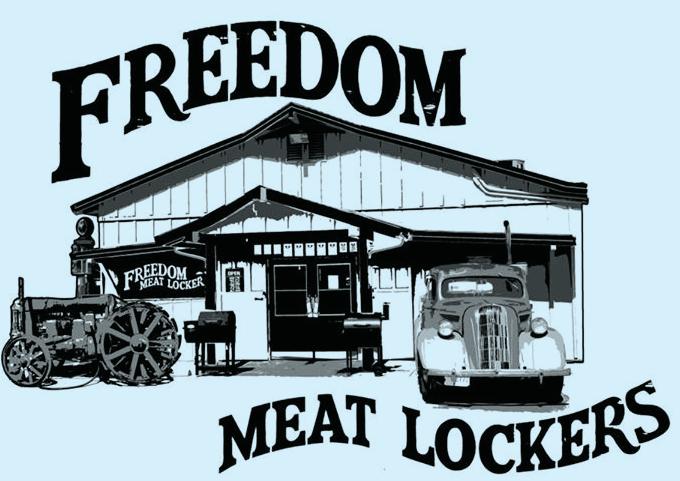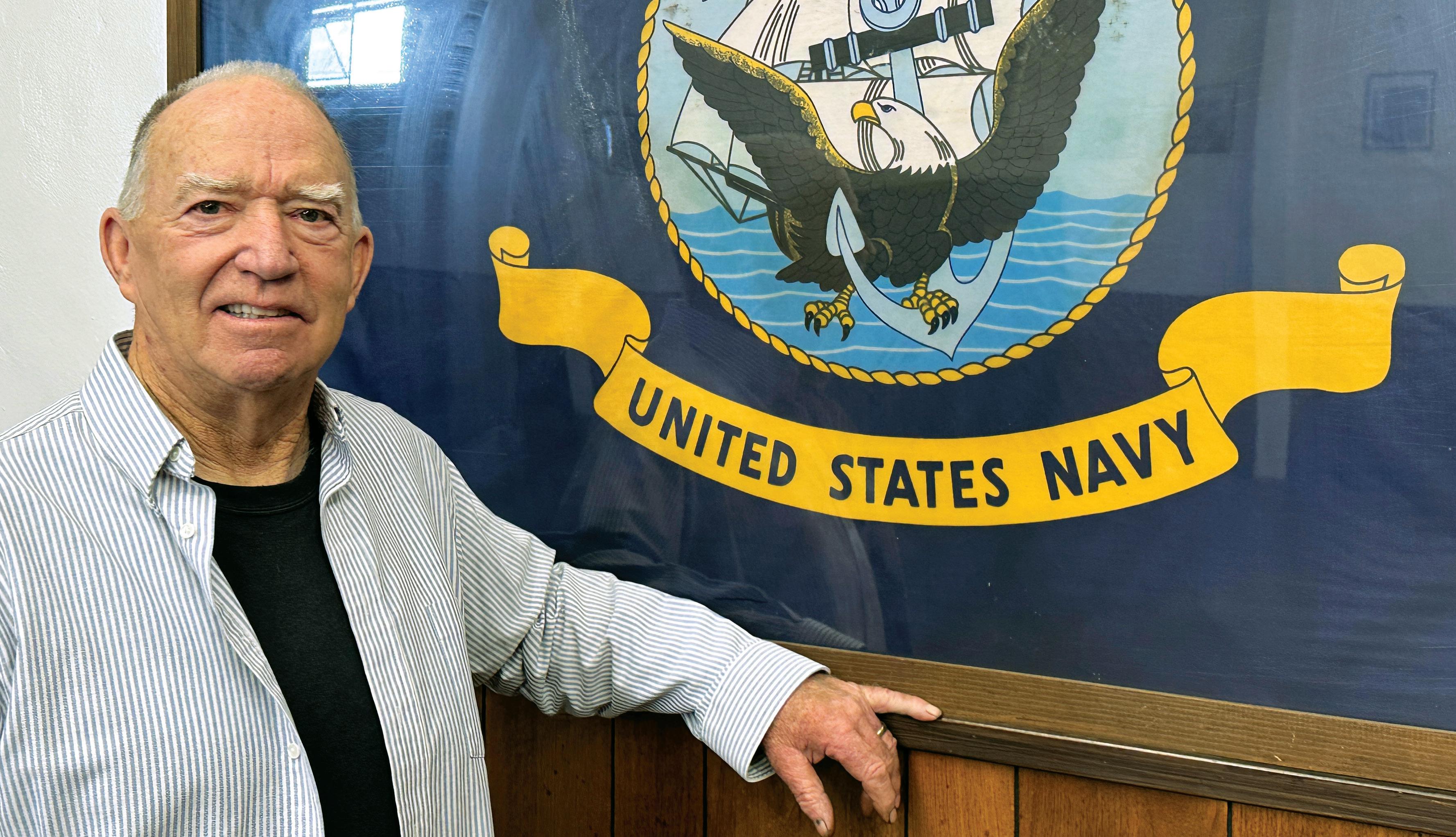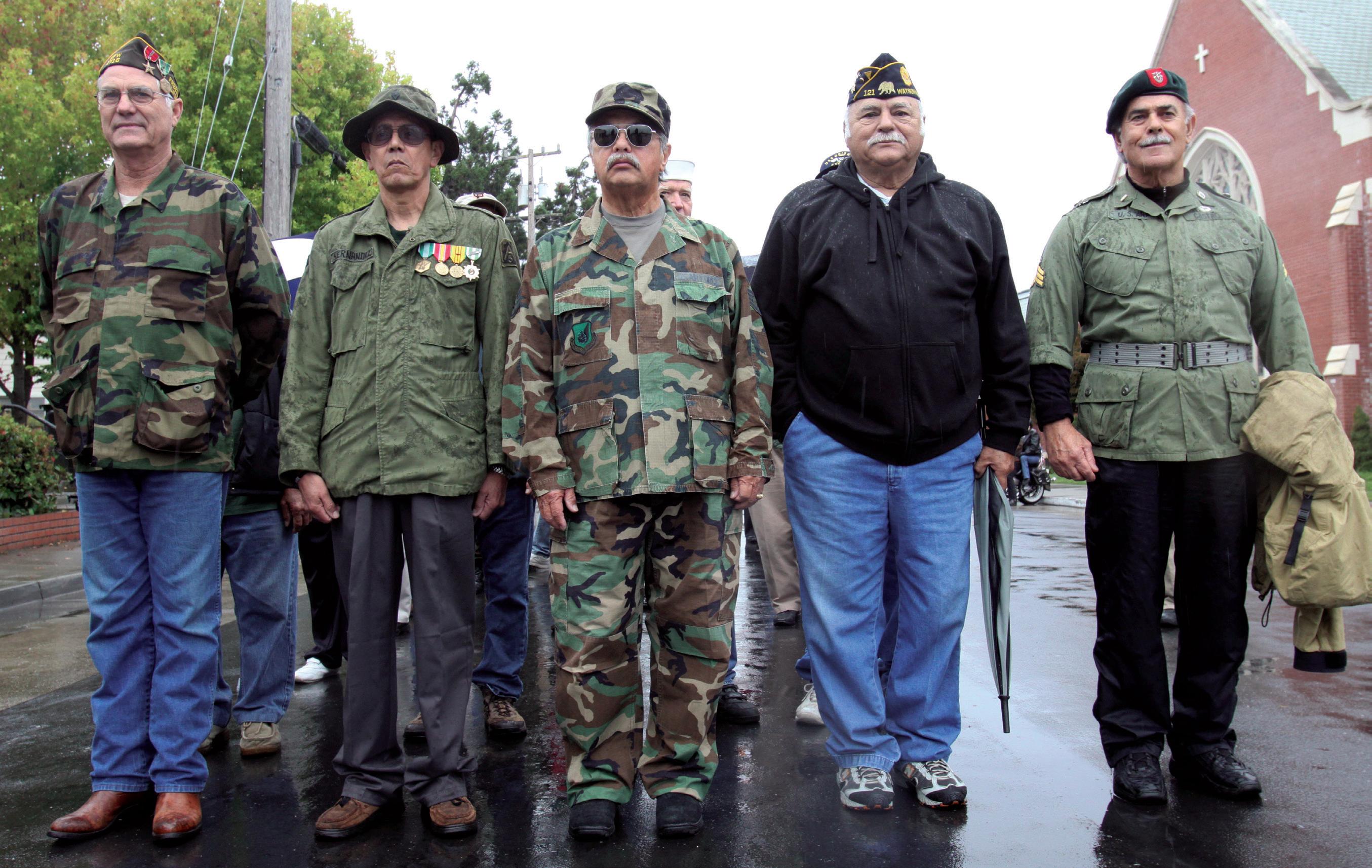




















































This year’s Veterans day march begins at 10am at Saint Patrick’s Catholic Church, and ends at the Veteran’s Memorial Building at 215 East beach St. The ceremony will begin at 11am
By Todd Guild MANAGING NEWS EDITOR
When I sat down for an interview with Bob Erbe—this year’s honoree
for the Veterans of Foreign Wars Post 1716, he asked me if I had served in the military.
I said, not without a touch of regret, that I had not. He was magnanimous in his response, saying that such a decision—indeed a life-altering decision—is not for everyone.
Perhaps he’s right. But I can’t help but think, what if I had chosen that path at the closure of my high school
career? The discipline and confidence it clearly instills in many of the people I have interviewed has always impressed me, and seems to have a positive effect on their lives.
None of the veterans I’ve interviewed seem to regret their decision.
‘We did what we had to do,’ They say.
‘It changed me for the better,’ or ‘It made me grow up,’ they tell me.
On Veterans Day, it is important to honor the people who do make the
choice to serve their country, whatever our feelings about the military are.
Many of these people are signing up to—quite literally—put their lives on the line for that mission.
With the addition of police officers and firefighters who also make that pledge, I don’t think that gratitude can be overstated.
So for those of you who have served, I thank you. Your service does not go unnoticed.






















Robert Erbe
byline
BYLINE CREDIT
Robert Erbe was born in Watsonville. He graduated from Watsonville High school in 1962.
He then entered Cabrillo College, where he found himself surrounded by people who had a vision for their lives.
“I was not one of them,” he said.
He says he spent summers picking berries, cutting apricots and working for JJ Crosetti farms loading celery or lettuce trucks. He also worked for Louie Bilicich cleaning high school classrooms.
He also had a job at Lambert’s Market. But eventually he realized his life lacked direction.
“I wasn’t lost, but I was not going in where you’d call a
positive direction,” he said.
That changed in 1965, when he signed up for the U.S. Navy just ahead of the draft.
“I celebrated my 21st birthday in boot camp in San Diego,” Erbe said.
He was then ordered to Navy Submarine School in New London, Conn., after which he was stationed on USS Kamehameha, a nuclear-powered submarine equipped to carry ballistic missiles, also called “boomers.”
He shipped to Bremerton Wash., where the sub took on 16 missiles, then to Pearl Harbor, which became the ship’s home port.
He soon earned the rank of 3rd class petty officer.
“This was not the life for a 22-yearold sailor, at least not mine,” Erbe said.
So he put in for transfer to an attack submarine and was assigned to the USS Seadragon,.
To become part of a submarine crew, Erbe said, one must become qualified on that boat. And with multiple compartments, multiple systems, battle stations, each crewman had his own division responsibilities.
“Your life, and the life of the crew, might depend on that knowledge,” Erbe said.
During his time on the Seadragon, Erbe patrolled the Western Pacific. But he had the chance to visit Hong Kong, China, Yokosuka and Sasebo Japan, Okinawa and Subic Bay in the Philippines.
Once he was released, Erbe found his outlook about life had changed.
The service, he said, “added some structure” to his life.
He returned to Cabrillo College, where he earned a degree in electronic communications and went to work for a local communications shop. Later, he went to work for the
County of Santa Cruz maintaining their public safety 2-way radio communication systems.
He retired in 2000.
Erbe met his future wife Linda Cardoza while on shore leave. They married in June of 1969. We have two sons, Kevin and Brian and six grandchildren and two great-grandchildren.
He spends most of his free time involved with the Santa Cruz County Fairgrounds, especially with the nonprofit Agriculture History Project as a board member and supporter and as a director on the board of directors of the Pajaro Valley Fire Protection District, among other things.
“It was the best thing that ever happened to me, I can tell you that,” he said of his service. “I think everybody ought to go. I did a lot of growing up. It changed me. It was an experience I will carry with me my entire life.”

American Legion Post 122 Veteran of the Year (Posthumous) byline
Todd McFarren sat on the Watsonville City Council from 1989–98— including two stints as Mayor.
He served as a U.S. Marine sergeant during the Vietnam War, and an attorney, he was known to fight fiercely for the “little guy” in his career spanning three decades.
He died in May at 74.
He served with the Second Battalion, Eleventh Marines, First Marine Division in Vietnam.
As an attorney serving the Watsonville area, McFarren specialized in personal injury, social security-disability and workers compensation.
He was known as someone that could relate to people from all aspects of life, from judges to attorneys to his clients.
McFarren joined the Watsonville City Council just after the cannery


strikes and during the 1989 Loma Prieta Earthquake, just after the racially-charged federal Voting Rights Act case Gomez vs. City of Watsonville and during the adverse impacts of the North American Fair Trade Agreement on Watsonville’s Frozen Food industry.
McFarren taught philosophy at Cabrillo College and founded the Moreland Notre Dame Chess Club.
He was president of the California Applicants' Attorneys Association and the Workplace Injury Litigation Group.
He also served with the Santa Cruz Local Agency Formation Commission and the Santa Cruz Metro Board of Directors. He was president of the League of California Cities and served on the Community Action Board.
He was former chair of the Santa Cruz County Democratic Central Committee and the first Chair of the Pajaro Valley Cesar Chavez Democratic Club.




































